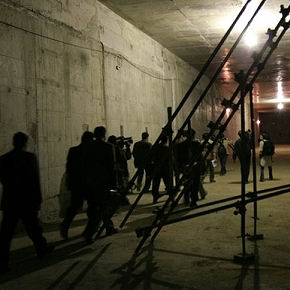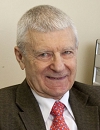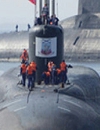As experts from the International Atomic Energy Agency (IAEA) return home after unsuccessful attempts to inspect Iranian Parchin military facility, Russian analysts are unanimous that there are no diplomatic means that would convince Tehran to quit its atomic plans.
“There are no ways, apart from military ones, that would make Iran drop its nuclear program,” Yevgeny Satanovsky, the head of the Middle East Institute think tank, said during a press conference on Middle East problems held on Wednesday.
Satanovsky’s comment came after the IAEA announced on Wednesday that its latest mission to Iran failed as Iranian officials rejected IAEA requests to inspect an alleged explosives testing facility at Parchin, southeast of Tehran.
An IAEA report unveiled in November said that there were "strong indicators of possible weapons development" at Parchin, an allegation Tehran strongly denies.
Anton Khlopkov, the head of the Center for Energy and Security Studies, said that among the possible ways that may have made Iran review its nuclear plans could be political guarantees from the West that would ensure the safety of the Iranian regime.
Satanovsky however opposed this suggestion, saying that “Iran will never believe any Western guarantees, after the things that happened in Libya and are now unfolding on the territory of its closest ally in the region, Syria.”
“I suppose that nuclear bomb is the only thing Iran is dreaming about since only the nuclear potential will give it guarantees for safety from any attacks from the West,” Satanovsky said.
Earlier on Wednesday at the meeting with Iranian nuclear scientists, the country’s supreme leader Ayatollah Ali Khamenei said that “despite what the enemy (the West) says, nuclear energy is directly linked to our national interests,” urging the scientists to "continue the important and substantial" work.
Professor Vladimir Sazhin, a senior researcher at the Russian Academy of Sciences - Institute of Oriental Studies, said he believed Iran was working to create “an industrial infrastructure for a potential atomic weapon, but not the weapon itself.”
Sazhin also said that “Iran’s entire regional politics will change after it acquires a potential for creating a nuclear weapon.” But the Islamic Republic is likely to reach the level sufficient for producing a bomb no earlier than in five or seven years, Sazhin said.
As the time for a diplomatic solution for Iran elapses, the Russian Foreign Ministry expressed concern on Wednesday that the United States may use its base in Kyrgyzstan, Manas, in a military conflict against Iran because of its proximity to the Islamic Republic (the distance between Kyrgyz capital of Bishkek and Tehran is about 1,331 miles) and the presence of NATO and the U.S. military units in the ex-Soviet state.
Western powers that suspect Iran of seeking to create a nuclear bomb imposed an embargo on Iranian oil exports in late January. Iran however did not fulfill its threats to block the Strait of Hormuz, a vital Gulf oil shipping route, in retaliation for the sanctions, but did cut oil supplies to Britain and France.
The IAEA delegation is led by Herman Nackaerts who is in charge of the Iran nuclear file.
In my view, the hi-tech hub should not be constructed in Moscow. I suggest moving Skolkovo to Kaliningrad.
According to the Dozhd TV channel, the corporation paid 12.5 million rubles (about $400,000) for the New Year’s bash.



